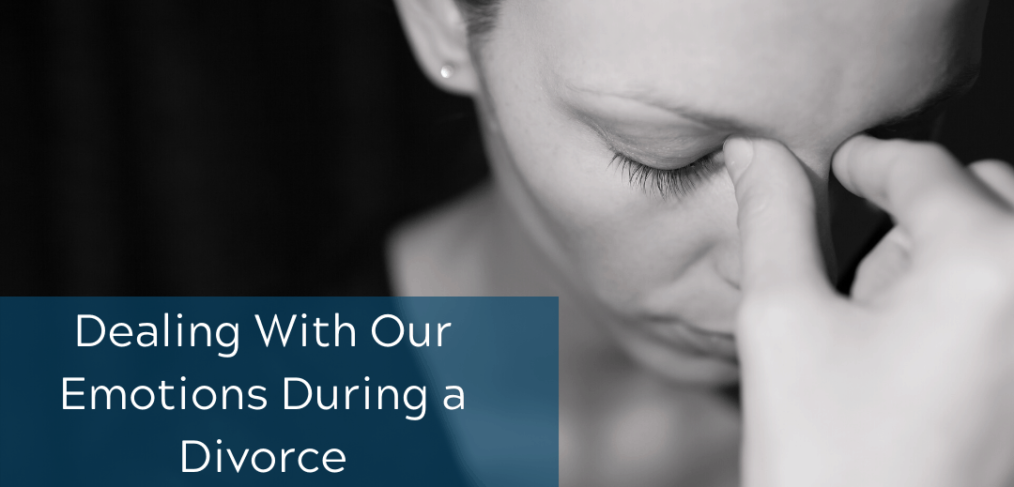
Dealing With Our Emotions During a Divorce
Divorce can be traumatic to the strongest of people, and in many cases it doesn’t matter whether we’re the one leaving the marriage or the one being left; for many the end of a marriage is similar to the death of a loved one. And in a way it is – it’s the death of a relationship in which we placed hopes and dreams and to which we looked to fulfill wants and needs.
So it only makes sense that we’d experience a wide range of emotions during the divorce process, ranging from disbelief to anger to denial to intense pain. And not getting a handle on these emotions can make the process even harder and the future look even bleaker than it already looks. Letting our emotions control us can cause us to make bad decisions, say things we wish we hadn’t said, and make everyone around us as miserable as we are.
Now, this isn’t to say we shouldn’t feel these emotions. There’s no should or shouldn’t when it comes to emotions, except in regards to how we express them and act because of them. We feel what we feel, and there’s no right or wrong to what we feel. But if we act in a way that causes our kids to be caught in the middle of a war of the parents because of our anger towards our spouse then we make it harder on them than it already is.
Or if we allow ourselves to be taken advantage of during the settlement because of the guilt we’re feeling over our part in the failure of the marriage that we fail to advocate for ourselves, our financial futures may be drastically and adversely affected.
So what can we do to make sure our emotions don’t cause us to come out of the divorce any worse off than we go into it? How do we protect our kids from becoming collateral damage?
Here are a few suggestions from Cathy Meyer, author of the article “How to Let Go of Emotions During The Divorce Process”:
• Let go of the “should haves” and look to the future. Replace the beliefs surrounding a situation over which we no longer have any control with beliefs about the future, over which we do have some control.
• Use the anger we’re feeling in a productive rather than destructive way. We can use our anger to fuel assertiveness or aggressiveness. Assertive is good, and can help us to negotiate a fair settlement. Aggressiveness can just make things worse.
• Stop trying to control a situation that is no longer ours to control.
I know, easier said than done, right? Right. But there are some things we can do to help us get to a place where we’re in control of our emotions rather than being controlled by them.
Here are my suggestions:
• Have or create a good support system. But this does not include the kids. They are not there to support us. We should be supporting them not the other way around. I’ve seen too many kids take on the role of parent when the parent can’t cope with the divorce, and all this does is deny the child the opportunity to be a child.
• Watch the alcohol intake. While a drink or two may help us forget our woes for a few minutes, too many can also cause us to make decisions we’ll later regret, interfere with our sleep, and contribute to a worsening of any depression already being experienced.
• Vent. Keep a journal. Or if you have a good friend or two that can handle you venting, talk to them. But know when to stop. Venting can turn to bashing very quickly, and can keep us stuck in the past rather than looking towards the future.
• Understand and find a way to accept the fact that we may never have an answer to the question “why.”
• Exercise. It’s good for the body, good for the soul, and can be a good and healthy outlet for our anger.
• Don’t ignore or be afraid of the emotions being felt. Ignoring them can lead to health issues, and being afraid of them can cause us to bury them, which isn’t healthy over the long term either. But if they’re beginning to cause more damage than we can cope with, ask for help.
Written by: Tricia Doane, Rust Built, Marketing Services
Latest posts by David Caplan (see all)
- Five Powerful Stress Reducing Tips to Help You Through Life Changes - March 3, 2015
- How to Cope with your First Family Vacation After Divorce - February 27, 2015
- Divorcing When You Have Adult Children - January 7, 2015



